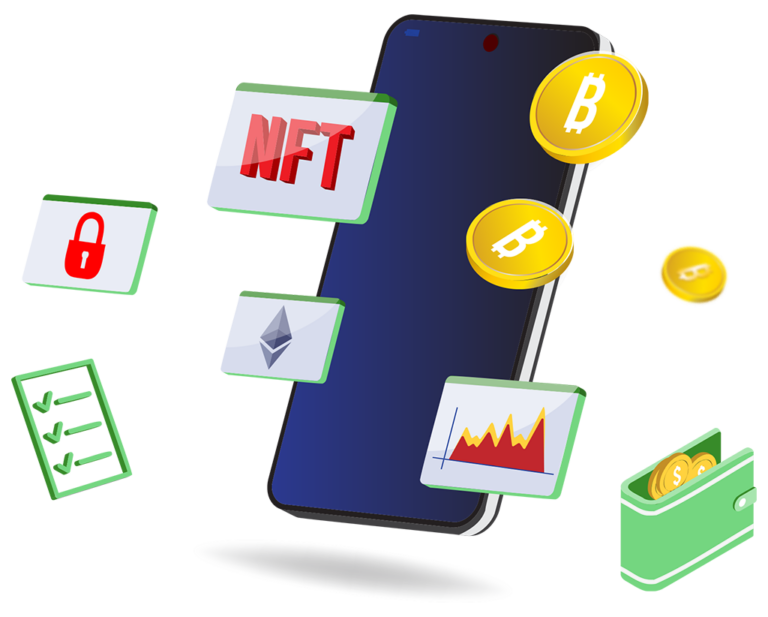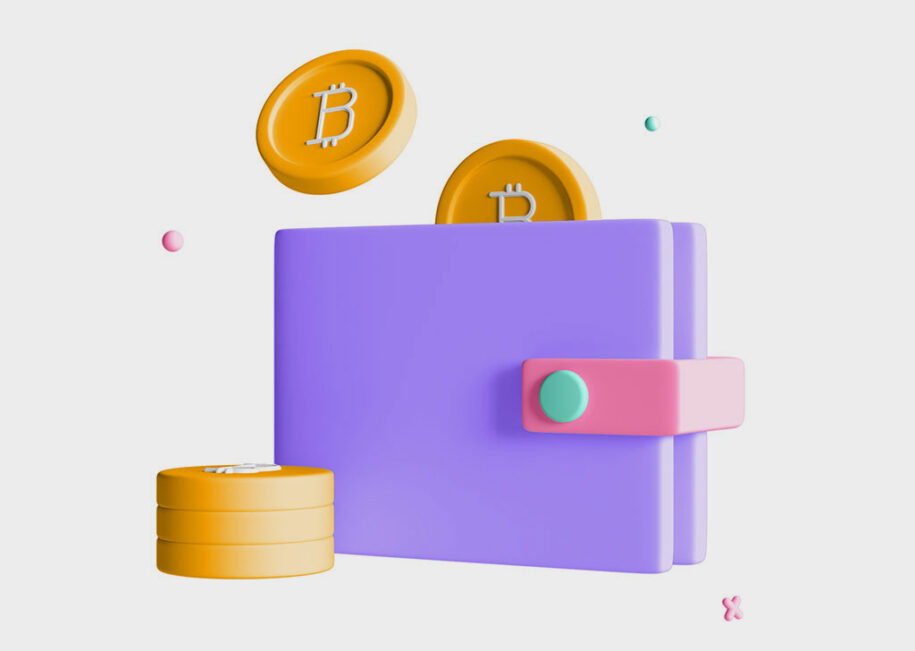Starting a cryptocurrency investment can be a rewarding and exciting opportunity, but it’s important to approach it with caution and do your research.
Cryptocurrencies are stored in digital wallets, and it’s important to choose a secure and reputable wallet to store your investments. Research different wallet options and consider factors such as security, fees, and ease of use.
To open a cryptocurrency wallet, follow these steps:
- Decide which type of wallet you want to use: There are several different types of cryptocurrency wallets, including software wallets, hardware wallets, and paper wallets. Each type has its own pros and cons, so it's important to consider your needs and preferences when choosing a wallet.
- Choose a wallet provider: There are many different wallet providers to choose from, so it's important to do your research and compare features and reviews before selecting one. Some popular options include Coinbase, Ledger, and Trezor.
- Create an account: Most wallet providers will require you to create an account and provide some personal information, such as your name and email address. Follow the provider's instructions to complete the registration process.
- Set up security measures: To protect your wallet and the assets it holds, it's important to set up strong security measures, such as a strong password and two-factor authentication.
- Fund your wallet: Once your wallet is set up, you can fund it by purchasing cryptocurrencies or transferring them from another wallet. Follow the provider's instructions to complete this process.
- Start using your wallet: Once your wallet is funded, you can start using it to store, send, and receive cryptocurrencies. Follow the provider's instructions and be sure to keep your wallet secure by regularly updating your security measures and backing up your wallet.
A cryptocurrency wallet consists of a public key and a private key. The public key is a unique address that is used to receive cryptocurrencies, while the private key is a secret code that is used to access and spend the cryptocurrencies stored in the wallet.
What are public keys, private keys, and wallet addresses?
- Public key: A public key is a unique string of letters and numbers that is used to receive cryptocurrencies. It is similar to an email address, in that you can share your public key with others to receive payments. A public key is not a security risk, as it cannot be used to access or spend the funds in your wallet.
- The private key is like a password that allows you to access your wallet and sign transactions. It is extremely important to keep your private key secure and never share it with anyone. If your private key is lost or stolen, it may not be possible to recover your funds. On the other hand, the public key is like an email address that you can share with others to receive cryptocurrencies. It is not a security risk to share your public key, as it cannot be used to access or spend your funds. It's important to note that while a wallet consists of a public key and a private key, some wallet providers may also use other forms of identification, such as a login and password or a recovery phrase. It's important to carefully read and follow the instructions provided by your wallet provider to ensure the security of your wallet.
- Wallet address: A wallet address is a combination of a public key and a private key. It is a unique identifier that is used to identify your wallet and track transactions. A wallet address typically consists of a long string of letters and numbers, and it may be represented in different formats depending on the cryptocurrency and wallet provider.
There are several steps you can take to keep your cryptocurrency wallet safe:
- Use a reputable wallet provider: Choose a wallet provider that has a good reputation and is known for security. Research different providers and compare their features and reviews before selecting one.
- Enable two-factor authentication: Two-factor authentication (2FA) adds an extra layer of security to your wallet by requiring a second form of authentication, such as a code sent to your phone, in addition to your password. Enable 2FA if it is offered by your wallet provider.
- Use a strong and unique password: Choose a strong and unique password for your wallet, and do not reuse passwords across different accounts. A strong password should be at least 12 characters long and include a mix of upper and lower case letters, numbers, and special characters.
- Keep your software up to date: Make sure to keep your wallet software and operating system up to date with the latest security patches and updates. This can help protect against potential vulnerabilities and attacks.
- Back up your wallet: In case your device is lost or stolen, it's important to back up your wallet to ensure you don't lose access to your funds. Follow the instructions provided by your wallet provider to create a backup of your wallet.
- Keep your private key secure: Your private key is a secret code that allows you to access and spend your funds. It is extremely important to keep your private key secure and never share it with anyone. If your private key is lost or stolen, it may not be possible to recover your funds.
Keep track of all your cryptocurrency.
Stay up-to-date on market trends and monitor your portfolio’s performance with real-time data. With our secure platform, you can rest easy knowing your assets are safe and well-organized. DeFiPatrol.com


